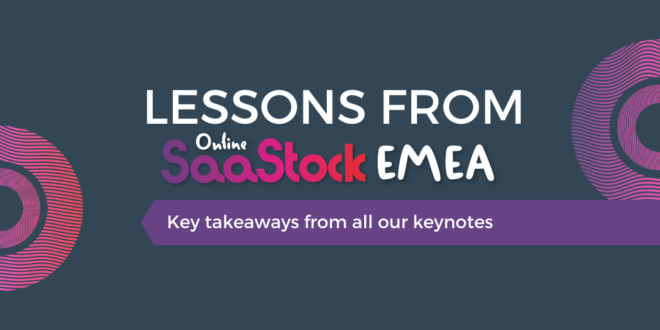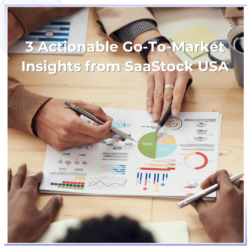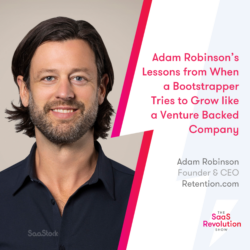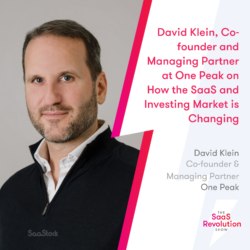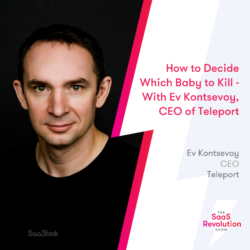This year we’ve fast-tracked into a new way of working, globally. One thing the world has learned this year is that SaaS companies are a key component to helping employees work remotely during the pandemic, and beyond.
Unsurprisingly, this was one of the key themes that ran through all the keynotes on the main stage at SaaStock EMEA. Our keynote speakers shared a common idea – embracing the changing world and finding new opportunities from it, and overcoming the unprecedented hurdles that these changes have thrown up.
Read on for a summary of our keynotes from SaaStock EMEA. We’ve grouped them into seven categories – click to jump to the section most relevant to you.
- European SaaS industry benchmarking
- Expanding into new markets
- Company culture
- SaaS sales best practices
- Marketing and growth
- Product and positioning
- Pricing and monetisation
Missed the conference, but want to watch the keynotes (and fireside chats, and panels) in full? Check out SaaStock.tv
European SaaS Industry Benchmarking
Philippe Botteri and Varun Purandare (Accel) – Accel 2020 Euroscape: Decacorn Unleashed
At SaaStock EMEA, Accel’s Philippe Botteri and Varun Purandare launched the Accel Euroscape 2020. This year, in addition to unveiling their list of top 100 Cloud companies started in Europe and Israel and their Champions League (the high-growth unicorns from the region), they also unveiled the Accel Euroscape Public Index: the index of the European and Israeli-born public cloud companies, and its performance.
Philippe shared 5 trends he’s expecting will generate the next SaaS leaders in Europe.
- Remote work
- Digitisation of healthcare
- The rise of the citizen developer
- Fintech stack moving to the cloud
- Security
Alex Ferrara and Dhruv Jain (Bessemer Venture Partners) – State of Cloud 2020: The Rise of Europe
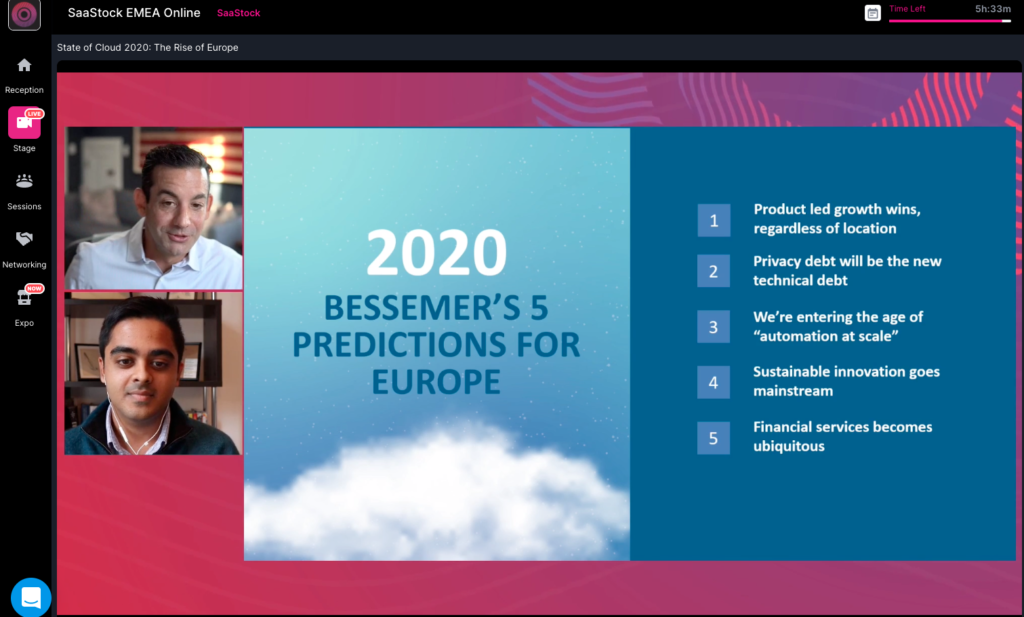
Alex Ferrara and Dhruv Jain (Bessemer Venture Partners) presented their State of Cloud 2020: The Rise of Europe, sharing the latest trends driving the European cloud ecosystem. Venture capital investment in the region is steadily rising, with startups raising a record amount of investment in 2019. Plus they’re seeing exponential growth in $1bn exits – with a strong pipeline of future European unicorns.
They shared their top five predictions for SaaS in 2021 and beyond:
- Product led growth wins – regardless of your location
- Privacy debt will be as important to manage as technical debt
- We’re entering the age of ‘automation at scale’
- Sustainable innovation going mainstream
- Fintech becomes ubiquitous
Jos White (Notion Capital) – SaaS is Having a Moment: Market Findings & Monumental Opportunities
In this keynote, Jos White, General Partner at Notion Capital shared why the subscription model has become the market leading form factor, what this means for the industry and forecast which sub-sectors will succeed – now and in the future.
He revealed that covid had a short-term impact on SaaS but is looking like it will be a long-term accelerator. Additionally, the impact of covid on SaaS companies hasn’t been as severe as expected, with many SaaS companies outperforming their revised 2020 targets. For the industry as a whole, global lockdowns look set to have been a tipping point, accelerating the SaaS market much faster than anticipated.
He shared 6 considerations as SaaS becomes market leader:
- Why SaaS? Remember that the original benefits of SaaS (vs on-prem) are more important than ever before.
- Customer expectations will increase
- AI is key. Makes software more intelligent & increases market size
- Beware the big guys. We’ll see the big companies investing more in SaaS & getting more aggressive on pricing
- GTM – customers will focus more on ROI, buying process will centralise.
- Enabling tech – importance of developer-led tech for a more joined up customer experience.
Expanding into new markets
Ari Helgason (Index Ventures) – Land, Expand, and Explode: How 275 European Startups Mastered the US Market
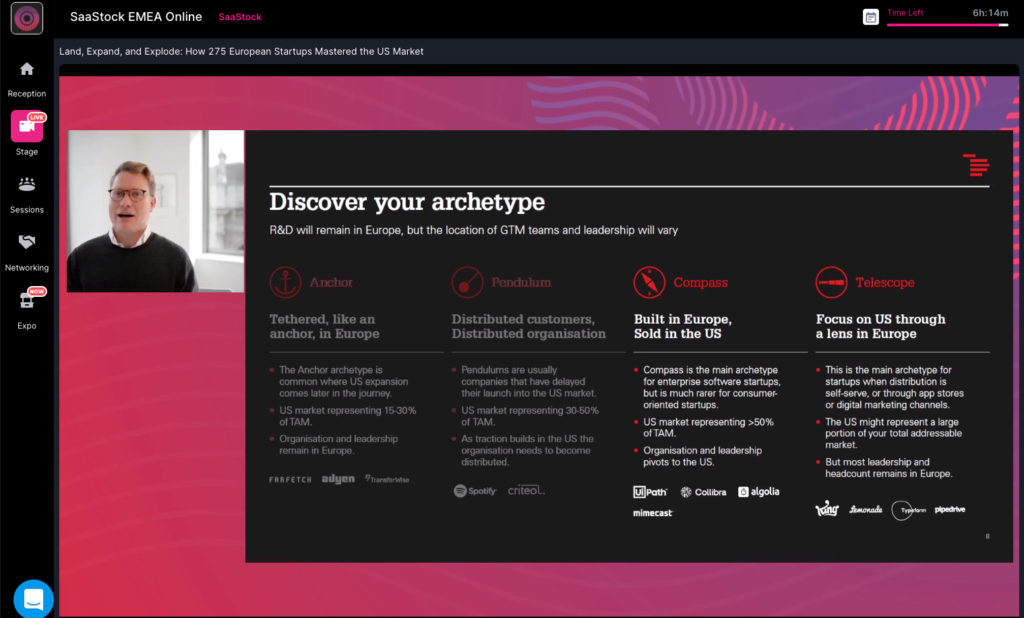
The US is the biggest tech market in the world. So how can European startups ‘make it’ across the pond?
Ari Helgason, Principal at Index Ventures explored the global expansion strategies of 275 European startups, as he shared key findings from Index Ventures’ Destination USA report.
The biggest questions it answers:
- As a founder, do you have to move to the US as you expand?
- When should you raise money from US investors? Is it a natural part of expanding to the US?
- Who do you need in your ‘landing team’? Product? Marketing? What are the key leadership roles?
- Where should you set up your US hub?
Check out the full Destination USA report from Index.
Jonno Southam (AWS) and Matthew O’Riordan (Ably) – Platforms & Partnerships: Your Go-to Global Expansion Strategy
Jonno Southam (AWS) shared the specific skills needed from your first sales leader (often hired after PMF and your first round of funding): domain experience, relevant and interesting examples from previous experience to share with prospects, and a player-coach mentality. When it comes to scaling up sales, nothing is more important than building out a repeatable sales process.
Matthew O’Riordan shares how Ably has built out their global expansion strategy (with AWS as a partner). He shares a global readiness checklist, to help you understand if your SaaS is ready to expand internationally: are you solving a global problem; is there a global pull; are you a product-led repeatable business in all markets; and do you need feet on the ground or professional services to complete the sales process? He also shares how Ably’s partnership with AWS has helped them accelerate their expansion strategy and specific benefits of working with a partner like AWS.
Product and Positioning
Rahul Vohra (Superhuman) – Work Should be Play: Designing Products for Fun
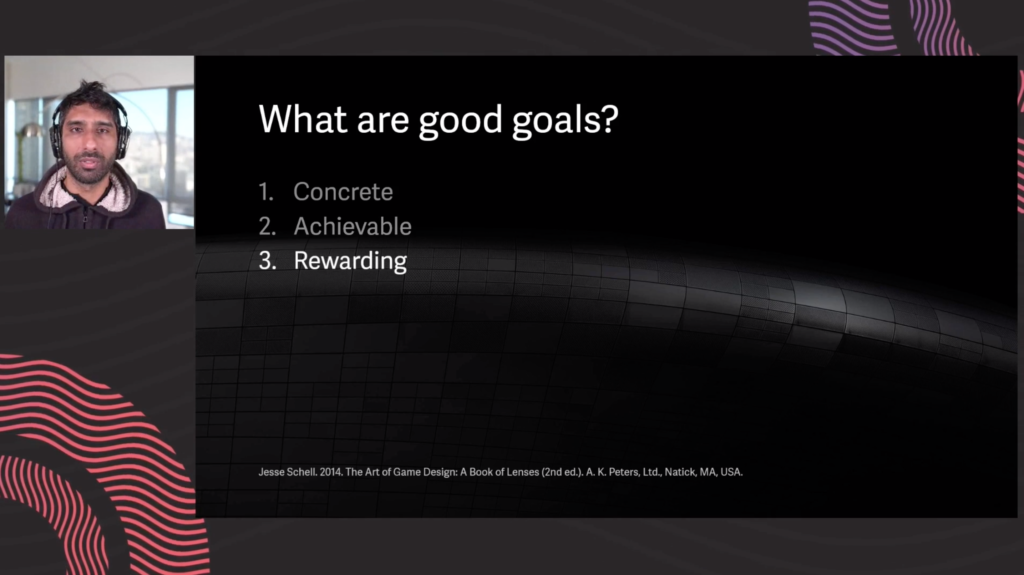
Rahul Vohra (founder and CEO of Superhuman) shared how effective it can be to apply the principles of game design to business software. Most SaaS solutions focus on what users want or need: the bread and butter. There’s some value in this – everyone needs the fundamentals.
By contrast, at Superhuman, they practice an altogether different kind of product development philosophy: making products like games. Whilst nobody needs games to exist per se – they delight users by tapping into their intrinsic feelings and emotions. Rahul shared how using principles of game design in your products can create next-level user experiences, and why successful products are designed for ‘fun’, not ‘need’.
Jan Arendtsz and Matt Graney (Celigo) – Automation for Growth: Using Integration as a Competitive Advantage
Jan Arendtsz and Matt Graney from Celigo gave an in-depth look at integrations and why they’re so important for scaling SaaS businesses.
Today, businesses use 100-300 SaaS applications day-to-day. Best-of-breed, established SaaS apps are the standard: having specific best-of-breed apps for specific business processes and needs.
But business processes often span multiple SaaS apps – particularly in the enterprise. As companies add more apps, information and data gets fragmented across different apps. To deal with this fragmentation companies develop automation processes to pull data back together.
Fragmentation impacts a company’s scalability and growth. If you’re selling to the Enterprise, integration with best-in-breed SaaS apps can be a real competitive advantage.
Key question for startups: what’s your automation strategy? 5 key considerations:
- Get an idea of the app landscape
- Understand the cost of fragmentation
- Have an integration roadmap
- Leverage out-of-the-box solutions
- Use an integration platform to provide a common way to approach integration
Tien Tzuo (Zuora) and Richard Waters (Financial Times) – Certainty Amidst Uncertainty: The Subscription Model’s Resilience in the “Next” Normal
Zuora CEO Tien Tzuo and Richard Waters (Financial Times) dove into the subscription model’s resilience in the ‘next normal’. They reflected on the past 6 months and forecast the opportunities that lie ahead for SaaS leaders.
Tien believes that there’s an inherent resilience to the recurring business model. The companies that have fared best during covid are ones that are agile. Where your business is now is your ‘new normal’: the ‘covid bump’ is a permanent bump.
He predicts we’ll soon see rapid growth in companies where face-to-face selling was big. Now that we’re all remote it’s easier to schedule meetings and accelerate selling. Additionally, pricing is more important than ever. Pricing in the new normal is the lifetime customer value. The more value they get, the more they’ll pay for you.
Tien joined Alex Theuma on The SaaS Revolution Show the week before the event. Listen to the episode in full:
Pricing and monetisation
Patrick Campbell (Profitwell) – Time to Get Tactical: Monetisation Strategy for a Volatile Market
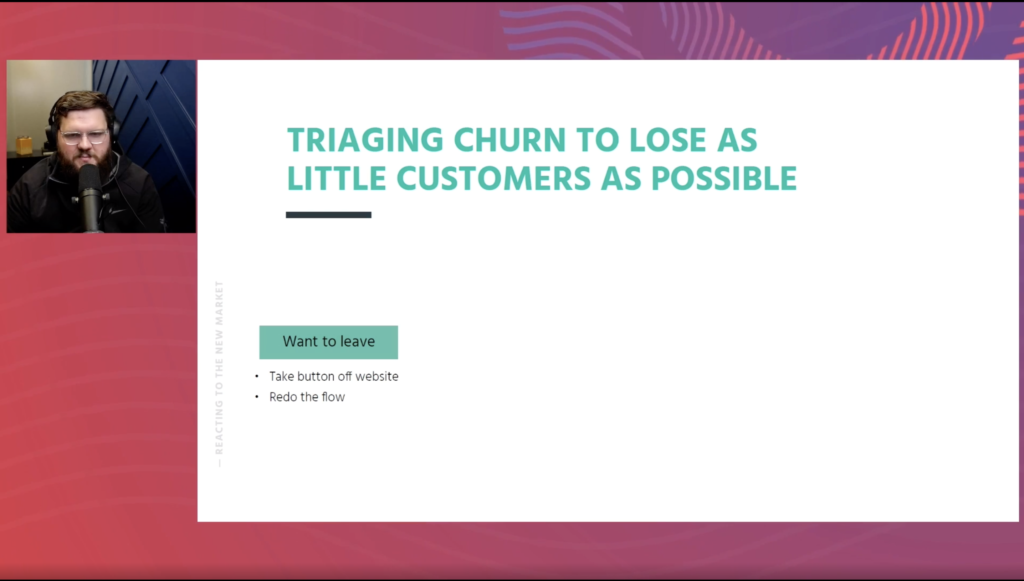
Profitwell CEO Patrick Campbell gave a deep dive into data, unpacking what he’s extracted from over 18,000 recurring revenue companies over the past 12 months, covering industry trends, willingness to pay, value metrics and freemium.
He shared real tactics to help SaaS companies work on both their offence and defence going into 2021. On the defence, it’s all about keeping hold of as many customers as possible: developing an offboarding process and tips for discounts. On the offence, it’s about identifying your ICPs (this might’ve changed during covid) and making sure your value prop aligns with them. It’s also time to re-think freemium: is it the right fit for your business?
For more, check out this Twitter thread from Patrick, giving more detail on how covid has affected B2B SaaS.
Peter McKay (Snyk) and Alex Kayyal (Salesforce Ventures) – Building Unicorns: CEO & VC Perspectives to Hyper-Growth
Snyk CEO Peter McKay joined Alex Kayyal, Head of Salesforce Ventures, for a fireside chat to discuss Snyk’s journey to becoming a hyper-growth company.
Peter talks in-depth about Snyk’s growth: how they built and scaled their sales process. They’ve been following the trend of digital transformation (accelerated by covid) – as companies become more tech & data-driven, their need for companies like Snyk grows. Snyk started with bottoms-up adoption: freemium, building content and building a community. They started with product-led growth and then moved to upsell.
Peter also talked about the role of funding in Snyk’s journey and shared his key bit of advice for other CEOs: to raise funding before you need it, as doing so at the point you need it is so much harder.
Missed the conference, but want to watch the keynotes (and fireside chats, and panels) in full? Check out SaaStock.tv
